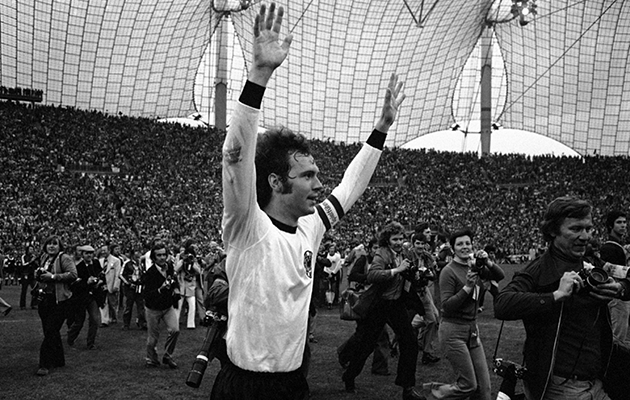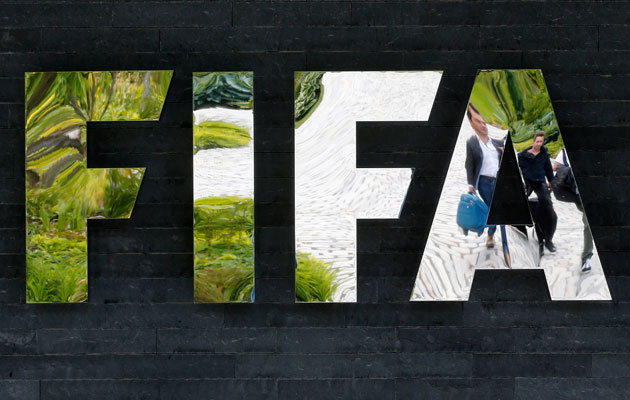Franz Beckenbauer and Angel Maria Villar, respectively one of football’s greatest players and one of its most powerful directors, are at risk of serious disciplinary action from FIFA’s independent ethics committee.
The committee, derided by many of the world federation’s critics, showed its teeth two weeks ago when it imposed provisional 90-day suspensions on FIFA president Sepp Blatter and UEFA leader Michel Platini after allegations of financial misconduct.
It also banned Chung Mong-joon and Worawi Makudi, former long-serving executive committee members, from the game altogether for a variety of offences.
Now, after a relaxation of the confidentiality rules on Tuesday by the FIFA exco, the ethics committee has released a list of senior present and past officials under investigation for ethics code offences.
Villar has long been considered a possible target for investigation over his reported refusal to co-operate with former investigator Michael Garcia’s inquiry into the scandal-scarred 2018-2022 World Cup bid process.
The former Spain and Bilbao midfielder who is also a FIFA and UEFA vice-president and had headed the Spanish federation for the past 25 years, had led the Spain-Portugal co-hosting bid which lost out to Russia for 2018.
Only on Tuesday the FIFA exco appointed Villar as interim chairman of its 2018 World Cup organising committee in place of the suspended Platini. Last week he also chaired an emergency meeting of UEFA and its own executive in his role as first vice-president, also because of Platini’s enforced absence.
However, it is the identification of Beckenbauer as being in the cross-hairs of the ethics committee which will arouse greatest turbulence. ‘Der Kaiser‘ has been an outstanding symbol of German football for the past 50 years – first as a World Cup-winning captain of West Germany in 1974 then as their victorious manager in 1990.

Along the way Beckenbauer also created the revolutionary role of attacking sweeper in winning a string of other major trophies, notably with Bayern Munich where he later became coach then president.
Beckenbauer was suspended briefly by the ethics committee in the spring of 2014 for not co-operating with the 2018-2022 World Cup bid inquiry. He had been involved centrally in the process as a member of the FIFA exco from 2007 to 2011 including the election in December 2010 when he was thought to have supported Russia and, initially then, Australia.
The serious nature of proceedings against both Villar and Beckenbauer was confirmed by the ethics committee.
A statement said simply: “Proceedings relating to the two officials Ángel María Villar Llona and Franz Beckenbauer have already been passed on to the adjudicatory chamber.”
This means that an investigation has found both men have a case to answer and it is now up to the adjudicatory chamber to consider the recommendations and, if deemed appropriate, pass sentence. This can range from a short suspension to a life ban.
Senior ethics judge Hans-Joachim Eckert can deal with the case of Villar but that of Beckenbauer he will have to refer to one of his deputies to avoid a conflict of interest over their shared German nationality.
The ethics committee also confirmed the provisional suspensions of Blatter and Platini and of FIFA secretary-general Jerome Valcke. The latter had been suspended initially by FIFA itself after allegations which he denied of potential involvement in a World Cup tickets resale deal.
However the ethics statement expanded on the reasons for its own subsequent suspension of the Frenchman, saying this “related to the suspicion of misuse of expenses and other infringements of FIFA’s rules and regulations.”
The ethics committee promised to try to complete its own investigation of the Blatter/Platini cases – involving, notably, a ‘disloyal payment’ of SFr2m – within their 90-day suspensions. If this is not possible it has the power to extend the suspensions for a further 45 days.
Blatter is hoping to be cleared in time to preside over the congress on February 26 which will choose his successor while Platini still hopes to return to the campaigning fray to emerge as the new FIFA president.
The ethics committee also confirmed that investigations are under way involving other past and present officials including Thailand’s Makudi, Jeffrey Webb, Ricardo Teixeira, Amos Adamu, Eugenio Figueredo and Nicolás Leoz.
Makudi was president of the Thailand federation at the time of his recent ban;
Webb, a Cayman Islands banker, is a former CONCACAF (central and north American confederation) president currently on bail in the United States over FIFAGate corruption charges (which he denies);
Teixeira was long-serving head of the Brazilian CBF and a former FIF exco member;
Adamu, from Nigeria, was banned for three years over the votes-for-cash scandal ahead of the 2018-2022 World Cup vote;
Figueredo, from Uruguay, is a former CONMEBOL (South American confederation) president currently contesting extradition to the United States from Switzerland over FIFAGate corruption charges (extradition has been granted initially by the Swiss authorities); and
Leoz, from Paraguay, is a former long-serving CONMEBOL (South American confederation) president currently contesting extradition to the United States from his native Paraguay.
Webb and Figueredo were among the seven men detained in Zurich on May 27, two days before the last FIFA Congress, on a warrant issued by the US Department of Justice following its FIFAGate inquiry into high-level corruption over the sale of commercial rights to international football tournaments.








